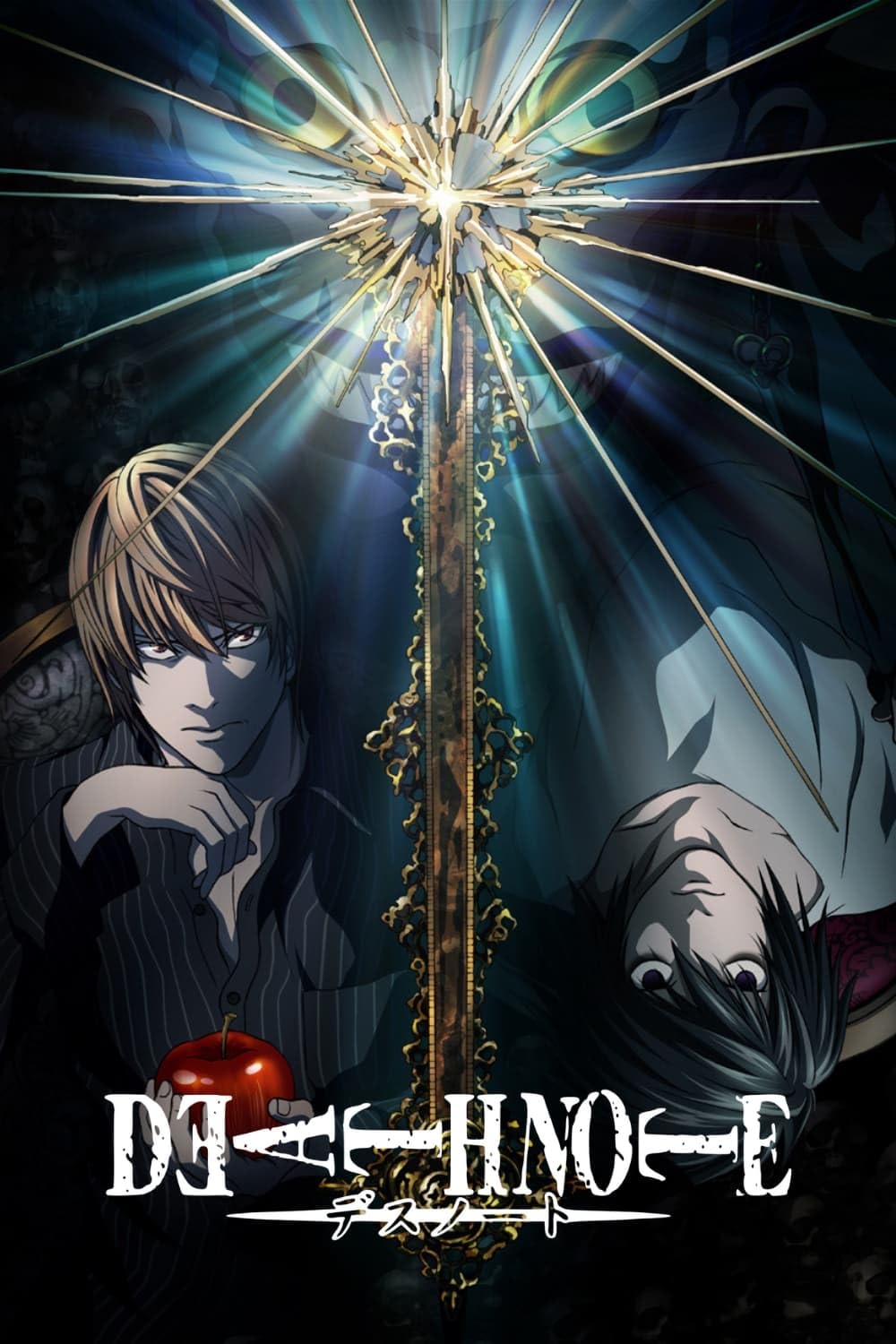
"Death Note" is a psychological thriller that centers on Light Yagami, a gifted high school student disillusioned with the world's crime and injustice. One day, he stumbles upon a mysterious notebook called the Death Note, which has the power to kill anyone whose name is written in it, as long as the writer knows the person's face.
Initially skeptical, Light tests the notebook by writing down the name of a notorious criminal. To his shock, the criminal dies within minutes. Realizing the potential of the Death Note, Light decides to use it to rid the world of evil and create a utopia where he reigns as a god-like figure. He adopts the alias "Kira" and begins his campaign to eliminate criminals, sparking worldwide media attention.
As Kira’s actions attract the notice of law enforcement, the Japanese police enlist the help of the world-renowned detective known only as L. L is highly intelligent and enigmatic, and he quickly deduces that Kira is operating from Japan. The battle of wits between Light and L becomes the crux of the story, as both characters try to outsmart each other.
Light forms a temporary alliance with the shinigami (death god) Ryuk, who dropped the Death Note into the human world out of boredom. Ryuk provides Light with guidance and insights about the notebook's rules but maintains a detached, voyeuristic attitude towards the unfolding drama.
As Light continues his crusade, he faces several obstacles, including other individuals who acquire Death Notes, and various law enforcement tactics to capture him. The narrative deepens with the introduction of other characters, such as Misa Amane, a devoted fan of Kira who also comes into possession of a Death Note, and Rem, her shinigami, who has her own motivations.
The tension escalates as L and Light engage in increasingly complex strategies, with Light often resorting to deception, manipulation, and violence to maintain his facade. As the stakes rise, Light’s moral compass becomes increasingly distorted, highlighting themes of justice, power, and the moral implications of playing god.
The series builds to a climax as L's investigation draws closer to uncovering Kira's identity. The ultimate confrontation reveals the psychological toll on both characters, culminating in a series of betrayals and unexpected twists. The story explores the limits of morality and the consequences of absolute power.
In the final arcs, after a series of confrontations and shifting alliances, Light’s identity as Kira is revealed, leading to a gripping finale. The narrative concludes with a reflection on the cost of Light's ambition and the inevitability of justice, leaving readers to ponder the nature of right and wrong in a world where power can corrupt absolutely.
